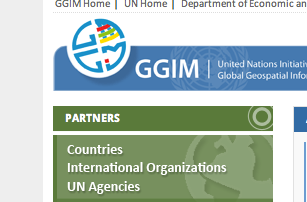In a tacit acknowledgement of the value of geospatial information, the UN’s Economic and Social Council voted on Wednesday to establish the Global Geospatial Information Management committee, which will include experts from around the world tasked with increasing cooperation around the sharing and collecting of geospatial data.
Why?
Geospatial information has application in many fields including humanitarian, peace and security, environmental and development challenges facing the world, such as climate change, natural disasters, pandemics, famines, population displacement and food and economic crises, according to the report.
Building the infrastructure for the gathering, validation, compilation and dissemination of geospatial information is therefore as important for countries as the building of roads and telecommunications networks.
However, there is currently no global multilateral or intergovernmental mechanism that can play the important leadership role of setting the agenda for the development of global geospatial information and promote its use to address key global challenges.
So, the UN has charged itself with taking on that role. The committee has been tasked with developing strategies, mostly, for developing nations to take advantage of geospatial data in the way that first-world countries already do, along with establishing best practices and that sort of thing.
It strikes me that developing countries don’t collect this kind of data because they can’t afford fleets of lidar-laden airplanes, but that might not be the only hurdle. And it might be that the US and other wealthier nations could pretty quickly gather that data for them (the US says they can do half of Afghanistan in 90 days – how long could Mali take?), but those countries wouldn’t have the knowledge-base or infrastructure to take advantage of that data.
Regardless, this could be a boost for the geospatial industry, which does struggle with a lack of standards in some areas. Will the UN body create the standards? Unlikely. But they might give a few people a shove from time to time.
Should you want to get involved or learn more, you can check out the GGIM web site, which has already been up for some time and already has an ugly logo (see left). This process has been on its way since before October of last year, and you can actually download a Power Point here that outlines the rationale for creating the body and some of the issues it should be addressing in coming years.
Whenever you’re dealing with a global body, things are likely to move slowly. Do I think this body will end up being a thought-leading organization? No. It won’t be nimble enough to keep up with technology advances. Could it lend credibility and gravitas to the industry? Absolutely. It may help with international companies getting government grants and funding, and it could help with spurring international governments to contract services with the leading companies in the field.
It’s worth paying attention to, certainly.





.jpg.small.400x400.jpg)
